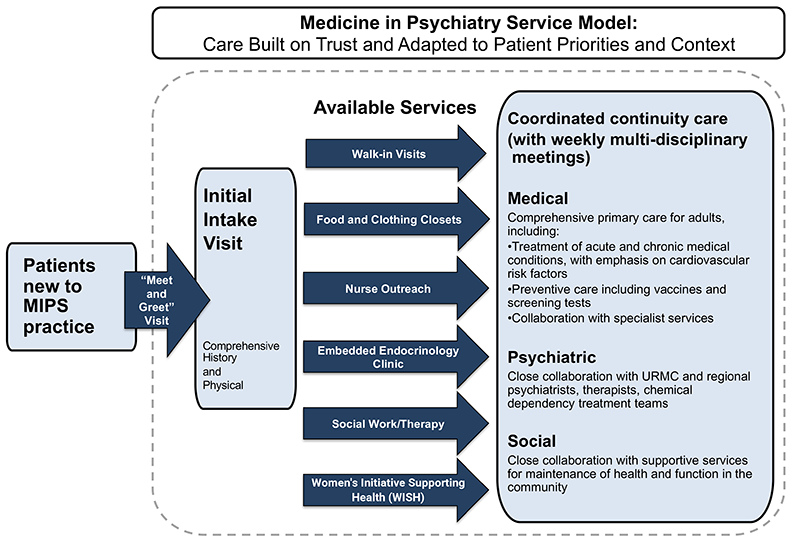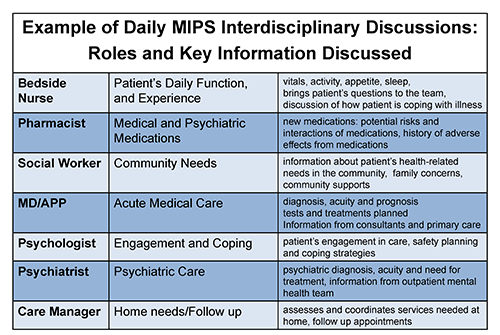Clinical Innovations in MIPS
The Division of Medicine in Psychiatry at the University of Rochester Medical Center is a leader in innovative medical care for people with mental illness and substance abuse disorders.
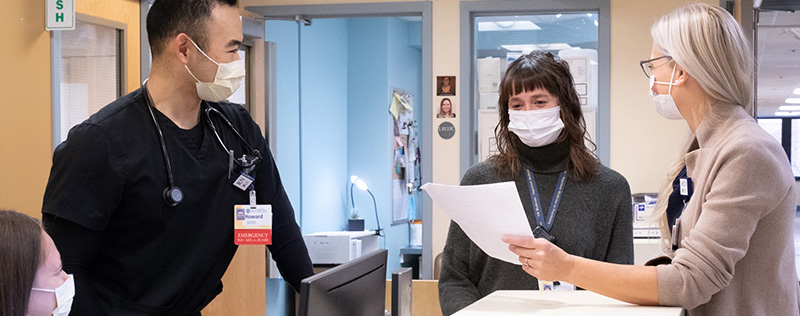
Innovations in the IMIPS Unit
The Inpatient Medicine in Psychiatry (IMIP) unit, staffed by a collaborative multidisciplinary team, is one of the select few hospital units of its kind in the country committed to providing acute medical care for people who may additionally have mental illnesses that can complicate their medical care.
- Clinical staff and faculty work in primary care and hospital settings to help ensure careful coordination before and after hospitalization.
- In addition to daily patient rounds, all team-members take part in daily a multi-disciplinary meeting where each patient’s individual needs are discussed from a biopsychosocial perspective.
- IMIP is actively involved in education and scholarship dedicated to team-based, biopsychosocial care targeted to vulnerable patients. Emphasis is placed on discussing risks and benefits of treatment options, challenges that may interfere with progress, and follow-up care.
- The clinical team is actively involved in multiple continuous quality improvement projects supported by a dedicated leadership team focused on developing innovative, patient-centered services for managing complexity in the healthcare system.
- IMIP has been at the forefront of a developing collaborations with similar units across the country that are focused on integrating medical and psychiatric care. Learn more about the National Consortium of Medical-Psychiatry Units.
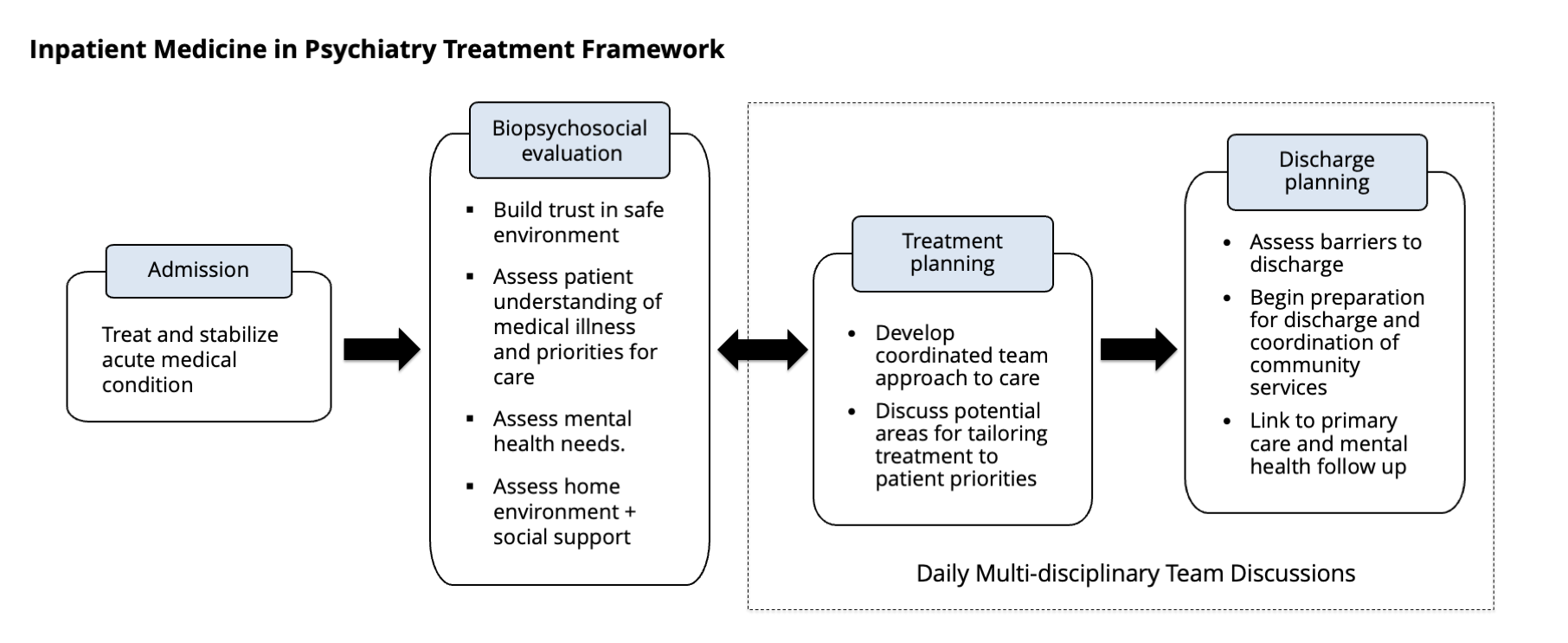
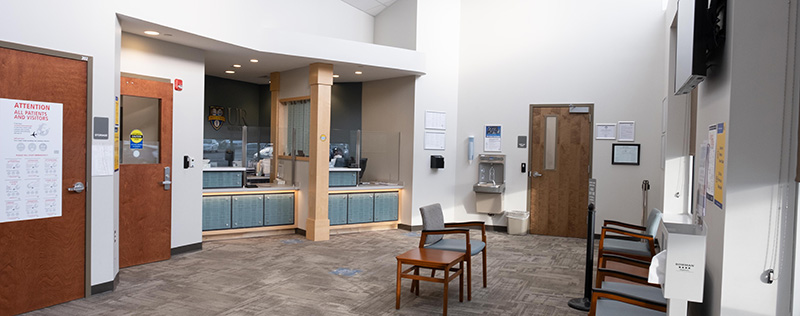
Innovations at MIPS-Primary Care
This national model delivers primary medical care within the behavioral health and chemical dependency treatment settings, providing comprehensive, integrated, more consistent care to individuals at high risk of chronic diseases.
- MIPS-PC cares for adult patients and receives referrals for people with psychiatric illnesses who have little or no engagement in traditional outpatient medical care, or who would benefit from a tailored medical approach that takes their psychiatric illness into account.
- Referral sources include community-based psychiatrists, primary care physicians, behavioral health professionals – including from within the department of psychiatry – and discharging physicians from the closely affiliated inpatient MIPS medical unit at URMC.
- While providing full-spectrum primary care services to all of its patients, MIPS physicians also provide psychiatric care and mental health counseling to a limited cohort of patients who are stable on their psychiatric medication regimens.
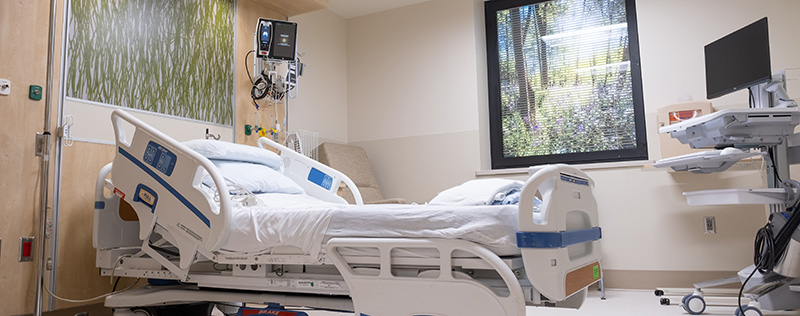
Innovations in the SUMMITS unit
The Substance Use, Infection Treatment and Support (SUMMITS) unit is a one-of-a-kind hospital unit committed to providing acute medical care to people who have substance use disorders or addictions who need to stay in the hospital for long courses of treatment.
- The design of SUMMITS aims to provide comfort and relief during long hospitalizations, with addiction counseling and connections to early recovery resources available during and after the hospital stay.
- SUMMITS clinicians include IMIP staff specializing in providing team-based, biopsychosocial care for vulnerable patients, as well as addiction professionals who work closely with the Strong Recovery Chemical Dependency program
- The SUMMITS unit is staffed by a collaborative multi-disciplinary team. In addition to daily patient rounds, all team-members take part in daily a multi-disciplinary meeting where each patient’s individual needs are discussed from a biopsychosocial perspective.
- Emphasis is placed on harm reduction, challenges that may interfere with progress, and follow-up care.
Interdisciplinary rounds
An important and unique feature of both the inpatient medical units and the outpatient primary care clinic is the structured interdisciplinary approach to patient care. Patients’ health needs are considered in the context of their individual behavioral, psychiatric, social, and functional needs.
To achieve this goal, the inpatient teams hold daily interdisciplinary discussion meetings about each patient. Similarly, the primary care team has daily interdisciplinary huddles to discuss the patients that will be seen in the clinic.
